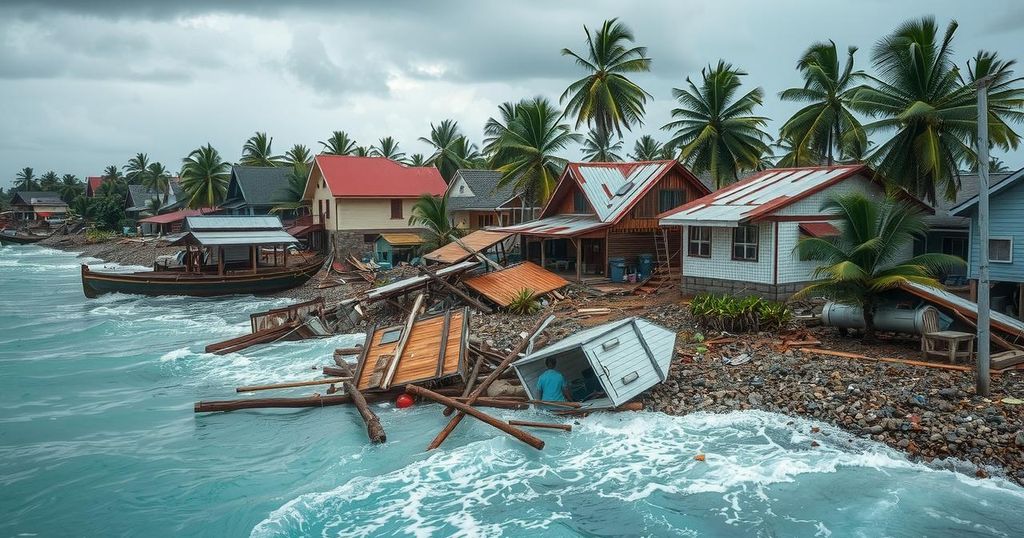Devastation and Aftermath of Cyclone Chido in Mayotte and Mozambique

Tropical Cyclone Chido has devastated Mayotte and northern Mozambique, leaving at least 22 dead in Mayotte and 34 in Mozambique. Efforts are underway to assist in recovery, with significant damage reported in both regions. French President Macron plans to visit Mayotte, reinforcing the need for coordinated support in one of the most severe storms to hit the region in a century.
A severe humanitarian crisis ensued following the devastation of Tropical Cyclone Chido, which wreaked havoc across the southwestern Indian Ocean, primarily affecting the French territory of Mayotte and parts of Mozambique. As of Tuesday, the death toll in Mayotte has been reported at 22, with expectations of it rising significantly due to the extent of the destruction. A curfew has been instituted, and French authorities are mobilizing resources for recovery efforts amid the wreckage.
Cyclone Chido first struck Agalega, located near Mauritius, on December 11 with winds exceeding 200 kilometers per hour, leading to widespread damage to critical infrastructure. Following its intensification, the cyclone directly impacted Mayotte, where one-third of the population resides in poorly constructed housing that could not withstand the storm. It later made landfall in northern Mozambique on December 15, resulting in additional casualties and damage across the country.
In reaction to the crisis, French President Emmanuel Macron plans a visit to Mayotte and has declared a national day of mourning, emphasizing the urgency of the situation. The recovery process has been challenged by the sheer extent of the damage; reports indicate that nearly all buildings on Agalega have been destroyed, while in Mozambique, tens of thousands of homes have either been completely or partially damaged.
Moreover, the cyclone’s aftermath has delayed political demonstrations in Mozambique, as opposition leader Venâncio Mondlane postponed protests originally scheduled to coincide with the cyclone’s devastation. The international community, including the United States, is poised to provide assistance to the affected regions as recovery operations unfold.
Tropical Cyclone Chido represents one of the most severe weather events to have struck the southwestern Indian Ocean in nearly a century. Originating from the Indian Ocean on December 7 and subsequently impacting islands such as Agalega and Mayotte, the cyclone featured maximum sustained winds that exceeded 200 km/h. The French territory of Mayotte, characterized by substantial poverty and urban shantytowns, experienced catastrophic damage, prompting a swift governmental response. As the cyclone progressed, its impact extended to northern Mozambique, compounding an already challenging political landscape marred by unrest following recent elections.
In summary, Tropical Cyclone Chido has caused unprecedented destruction across several territories in the southwestern Indian Ocean, with Mayotte and northern Mozambique bearing the brunt of its severity. With official death tolls expected to rise and critical infrastructure compromised, ongoing recovery efforts are essential. The response from local and international authorities underscores the urgency of addressing the humanitarian crisis resulting from this natural disaster.
Original Source: www.bnnbloomberg.ca








